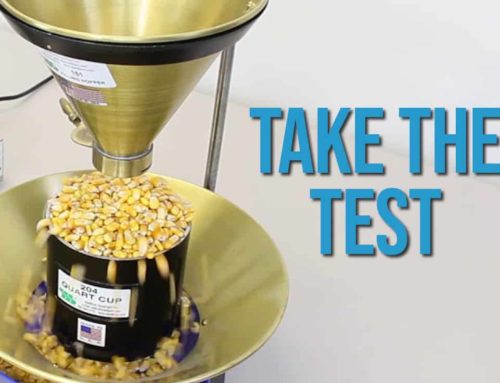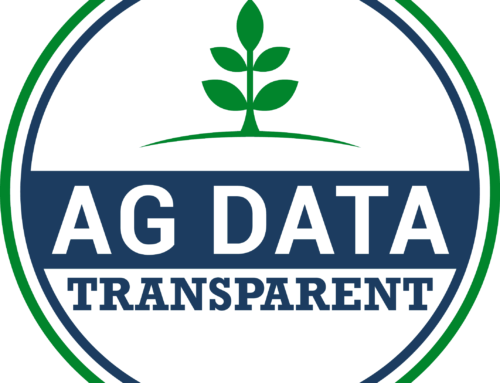How is your crop looking? Are you going to be able to fill the forward contracts you set up when things were rosy before planting?
Getting out into the field right now, figuring out what you have, and then communicating with your grain buyer will be a massive part of your grain marketing plan this year.
While this is one of the most widespread droughts in decades, this is not the first time producers have had issues filling forwarded contracts because of the weather.
Mike Witkowicz is the Vice President of Strategy and Business Development for CXN360 – The Ag Exchange Group. He has held several jobs in the ag industry through the years, some of which bestowed years and years of grain buying experience on him.
Having travelled recently to several areas around Manitoba, Saskatchewan, and Alberta, he says some crops are average, at best, and the rest are below that in yield and quality. Meaning much is being turned into green feed or has had a total crop failure.
Have the Tough Conversation
Calling your buyer and telling them you can’t deliver what you promised is obviously something no one looks forward to. However, it’s a tough conversation you need to have.
“If you’re short, head straight into it, call the buyer,” Witkowicz says.
He says be straightforward, tell them what’s going on, stay in communication.
It’s important to remember; the challenging situation is no surprise to anyone, so you are most likely going to be met with a sympathetic ear as long as you pick up the phone or send an email early.
No Cookie Cutter Solution
Each company will have its own way of dealing with it.
“Some will outright contract cancel; some will provide you an opportunity to choose to roll to the following year.”
If they do choose to roll, there could be some admin fees associated with it.
Witkowicz says in his experience, the more collaborative people are upfront, the more collaborative the buyer is.
As a grain buyer, the earlier they know they are dealing with a shortfall on a contract, the easier it is to manage the sales they have on the back end of those contracts and build contingency plans.
In his previous work as a buyer, Witkowicz says they were flexible early on; however, things changed if there was a delay.
“Once you rolled into February, and someone’s coming to you and saying, ‘I’m short on my contract.’ Well, then you’ve got to start questioning, was that a collaborative relationship or not?”
Witkowicz says that goes both ways; If you are up-front early on and the company doesn’t work with you, he says you may want to keep that in mind moving forward.
Keep Records
When you have a conversation with your buyer, make sure you take a few notes for your own records.
While grain companies keep good track of their deals, Witkowicz says you don’t know if the person you are dealing with will move on to another opportunity between conversations.
Grain is about Relationships
Relationships are key in grain, whether it is in marketing, with your seed rep, or your agronomist.
It is no different with your buyers.
It is something that is at the core of CXN-360.
“If you want to have a good relationship, you collaborate,” says Witkowicz.
What if You Have Multiple Contracts?
If you have forward contracted on a few of your crops and you’re going to be short on a few fronts, then you have some decisions to make.
Witkowicz says you must decide whether you will short all of them or if you feel you are wanted by the grain company, find a way to get some contracts canceled or rolled.
He says you need to look at the big picture.
Bills, Bills, Bills
There’s a lot on every farmer’s mind this year.
What can’t be forgotten are bills for various inputs that went into the crop.
Witkowicz says don’t take your eye off when your payments are due and make sure you have conversations with your input lenders well in advance if things are tight.
He says the last thing you need is empty bins and an approaching deadline on some bills.
Overages = Opportunity
Given that yields will be way down this year, grain companies will be hungry to fill contracts they are short on, which means if your crop performs better than you forward contracted for, you are in a great position.
Witkowicz says to make sure you maximize on the situation.
“You always keep an eye on as to what’s going on there. I think things are going to be strong for those that have uncontracted extra production.”
This starts by doing your research. By using a site like CXN360, you can get a good idea of where the price for your grain sits and what you can ask for it.
Conclusion
1. Don’t wait. If you haven’t talked to your grain buyer about your possible shortages, have the tough conversation now.
2. This is not a surprise to anyone. Many farmers are in the same situation, and your grain buyer will likely understand and present options if you communicate early.
3. Every grain company will have different ways of dealing with shortages; some may cancel, some may roll them.
4. Grain is about relationships; keep them in good shape by communicating.
5. Keep an eye on your bills and cash flow.
6. If you have a great crop, maximize on your overage by researching where the market sits on CXN360.
CXN360 is FREE to join and you’ll never pay a fee or commission on any grain sale. Maximizing your farm’s profit is more important than ever.




